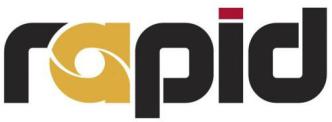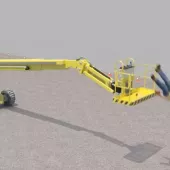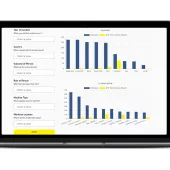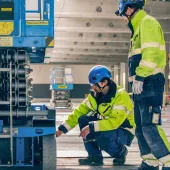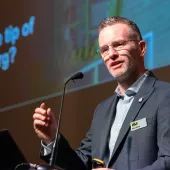Latest access platform accident statistics
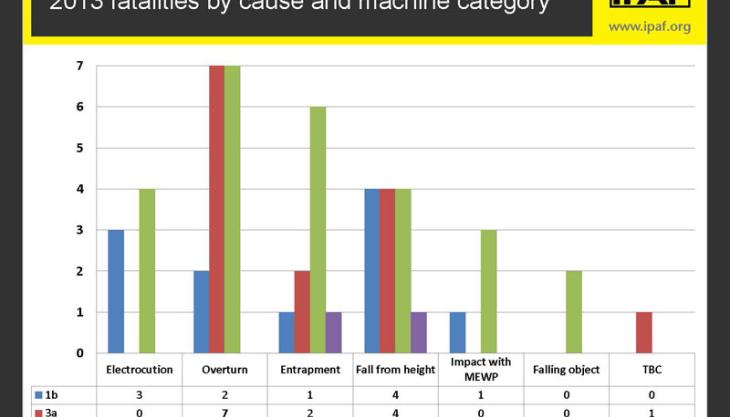
International Powered Access Federation (IPAF) releases details of MEWP-related fatalities in 2013
ACCORDING to preliminary results from IPAF’s voluntary accident reporting database, there were 53 fatalities worldwide in 2013 involving mobile elevating work platforms (MEWPs), also known as aerial work platforms (AWPs).
The main causes of these fatalities were: overturn (16); fall from height (13); entrapment (10); electrocution (7); impact with MEWP (4); and falling object (2). In one case, the cause of the fatality was not known.
Almost half of the number of reported fatalities (26 or 49%) involved mobile booms (3b); 14 fatalities (26%) involved mobile verticals (3a); and 11 (21%) involved static booms (1b). In two cases (4%) the type of machine involved was not known.
Thirty (57%) of the fatalities occurred in the US, home to 54% of the world’s rental fleet; three fatalities each were reported in Germany, Spain and the UK; two fatalities each in Belgium, Canada, France and the Netherlands; and one each in Armenia, Australia, Ireland, Malaysia, Norway and the Middle East.
IPAF’s accident reporting project was launched in January 2012, filling a gap where there was previously no single mechanism for reporting and analysing serious accidents involving MEWPs/AWPs and no definitive data on the number and main causes of fatal accidents. In the first year of the project, 32 fatalities worldwide involving MEWPs/AWPs were reported.
IPAF technical officer Chris Wraith stressed that the accident project is still at an early stage and cautioned against direct comparisons in its second year. ‘It will be at least 2016–2017 before any realistic year-on-year comparison on the frequency of accidents can be of value,’ he said.
‘The comparative figures presented are for information only and do not in any way suggest an increase in the number of MEWP-related fatalities from 2012 to 2013; they are more an indication that the awareness and success of the project is growing.
‘Powered access is probably the safest way of performing temporary work at height, and the industry is becoming more aware and reporting accidents, rather than having more accidents,’ said Mr Wraith.
IPAF’s chief executive officer, Tim Whiteman, added: ‘As awareness of this ground-breaking project grows worldwide, so does the number of countries, companies and individuals who contribute to it. Over time, this project will capture more comprehensive data and allow us to draw more useful comparisons and conclusions.
‘I would encourage anyone who is aware of a MEWP-related fatality in their country to report it to the IPAF website. There is a mechanism to make anonymous reports should people wish to do so.’


